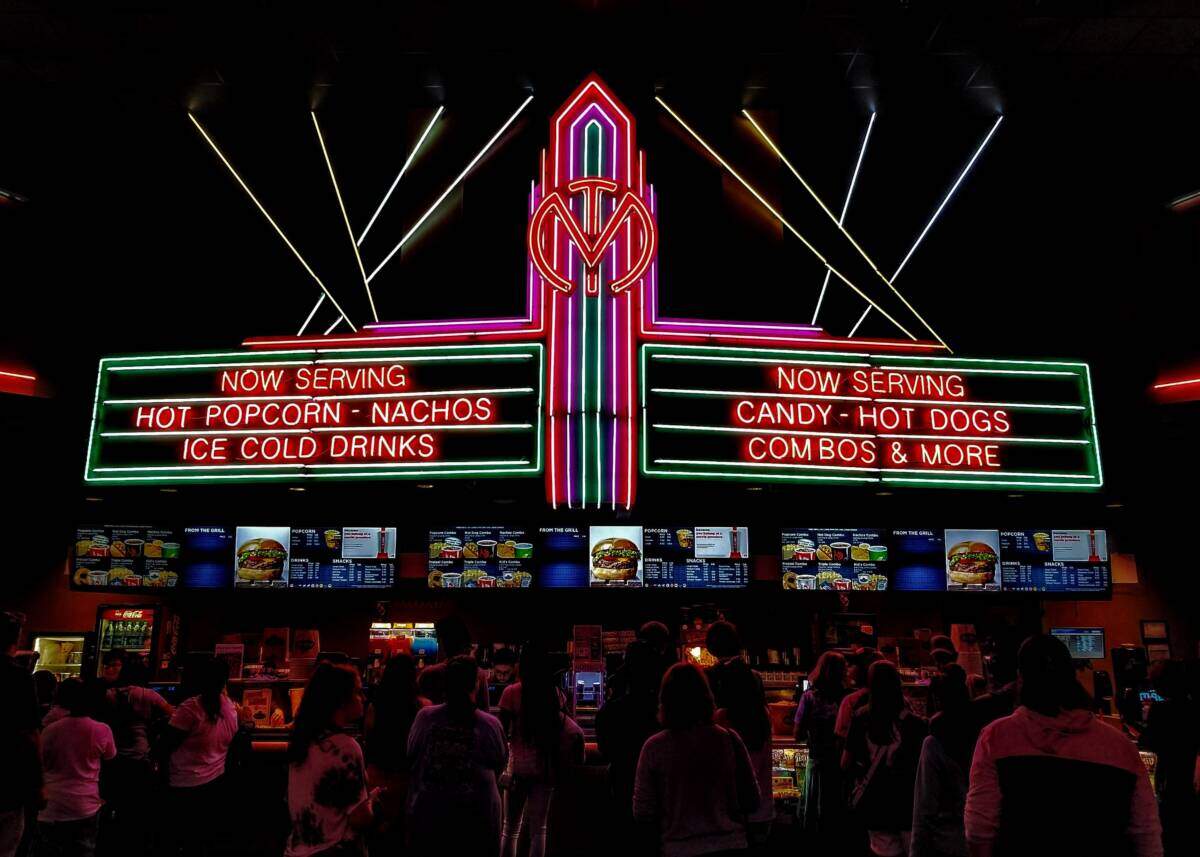Visual media can highlight story aspects for fiction authors, regardless of what kind of work they’re writing. Earlier, I was talking about the lazy use of tropes in Ghostbusters: Afterlife and learning from just bad writing. Here, I’m going to look at how the structure of a story can cause it to succeed or crash-and-burn. Marvel has inadvertently given us a great example of this effect in two films from last year: Shang-Chi and the Legend of the Ten Rings and Eternals.
Also – and to serve as spoiler space – the Kickstarter for That Which Cannot Be Undone: An Ohio Horror Anthology ends on 28 January. The anthology is scheduled for October 2022 and will include twenty stories from me and other Ohio authors such as Lucy Snyder, Tim Waggoner, Megan Hart, Gary A. Braunbeck, and Gwendolyn Kiste. Check it out and back the antho at:
https://www.kickstarter.com/projects/crackedskullproject1/that-which-cannot-be-undone-an-ohio-horror-anthology

The quick review for those looking for that: Shang-Chi was extremely fun and worth my time and money. Eternals was a complete mess, and is worth watching to dissect why it is a mess, and how it could have easily been very, very different.
Both Marvel films are effectively shoved into a "superhero" format – notable because they aren’t really "superhero" stories. I mean this in the same way that the first Captain America film is really a war movie and how Winter Soldier is really a spy movie, even though they’re dressed up in superhero clothing.
Shang-Chi takes the form and structure of two types of film popularized in Asia – wuxia (sometimes called "wu-shu") and heroic bloodshed (sometimes called "blood opera") – and starts from there. The Venn diagram of the emotional core of both these styles of film significantly overlaps, particularly regarding the motivations and type of protagonist, even though the trappings are often wildly different. We see this in the wildly disparate different sequences from where Wenwu fights (and falls for) Ying Li and the combat sequence in the skyscraper in Macau not long afterward.
But in both these styles of film, the violence is not violence for violence’s sake. The violence is metaphor for conflict, emotion, and resolution, both in style and in substance. The combat between Wenwu and Ying Li is a visual representation of their warring impulses between their obligations and their growing feelings for each other.
I recently heard a powerful description of what musicals should be: "When the emotion becomes too much for speaking, the characters start singing." Heroic bloodshed uses violence in the same manner, and we see this play out as Wenwu’s grief transforms into slaughter, or in the shape of the final confict between Wenwu and Shang-Chi. We also see pretty much exactly this same principle play out (though arguably with less emotional impact!) at the end of Civil War when Iron Man and Cap fight each other.
Those similarities are why – even though there’s a lot of worldbuilding required – Shang-Chi works well dressed up in superhero clothing and in a film runtime of just over two hours.
Eternals, on the other hand, absolutely does not work as it exists in the world today. In the first thirty minutes there is a prologue, an origin sequence, and then a second quasi-origin sequence to finally get to the plot of the story. Throughout these sequences, we get massive swells of "heroic" or "emotional" music and particular types of images and sequences that are meant to evoke strong emotion about characters… literally seconds after we have been introduced to them. Even when the film takes a moment – and I mean a moment – to pause and explain a motivation for a character, it is an explanation.
That doesn’t really change at any point in the two and a half hour runtime. The film manages to feel both rushed and boring as hell at the same time, and that’s where the structure matters for us as writers.
Eternals should have been a mythic epic story. It attempts to massively modify the already-complex cosmology and history of the MCU. It attempts to tackle some really big questions about the nature of "good" and "evil" and what "counts" for each when your perspective is on a different time or size scale. It also attempts to examine some very deep and personal questions about unrequited feelings, about identity and appearance.
And they tried to shove it into two and a half hours and dress it up as a superhero story.
While this is the same mistake that DC made, it’s a bit worse… because this could have been good in a different structure. Like if you gave it nine or ten hour long episodes to breathe.
In a better world, the structure would probably break something like this:
- Episode 1: Set up the premise of who the “good guys” and “bad guys” are, introduce Sersi as our POV character and her modern-day setting, and give us some of the backstory romance between her and Ikarus. End with the aftermath of the attack in London.
- Episodes 2-4: Continue following the modern-day A plot, introducing the other Eternals as we go. Provide backstory for each as we progress, and take a moment to show their motivations through interactions. Drop hints about the first twist, revealing it around the end of this portion.
- Episodes 5-7: Remainder of “gathering the team” sequence, but now layering in the additional conflict from the first twist. Use this period to build the tension as the team questions and debates what’s going on, ending with the second big twist.
- Episode 8: Debate and conflict about the second big twist.
- Episode 9: Final crisis and resolution.
Once you think about it like that, it’s clear that Eternals was doomed by the attempt to make it a superhero movie when it never should have been one.
If it was given that much room to breathe, to give us a chance to care even a little about these characters, Eternals would have felt more like Loki, possessing both breathtaking scope and characters we cared about individually. Instead, it felt like someone filmed the plot synopsis without actually developing the plot as a whole.
Don’t get me wrong. There are plenty of other problems with Eternals as well. Some notable points:
- The Eternals themselves… well… because it’s dressed up as a superhero story, the Eternals come across as only slightly above the power level of the Avengers. (Maybe the Justice League, since Ikarus is a Superman knock-off.)
- The entire premise (even after all the reveals) doesn’t particularly track with even a basic knowledge of entropy and cosmology. The premise is something that should have come up or at least get mentioned in Loki or What If…?.
- Characters contradict themselves about basic facts. Sersi early on tells John Snow (or whatever his name is) the Deviants were ended 2K years ago, and then later we see them get the “last” of the Deviants in the 1500’s CE; an important detail because the Eternals have just been waiting around since then to “go home”.
- Immediately after setting up that Thera going nuts and trying to attack everyone – important because this is really the only character arc Thena has – is because of “too many memories”, the leader of the Eternals tells the rest of them to just go wander the world individually and live thier lives, e.g. “make more memories for yourself”.
- The film’s diversity and locations feels forced. Hate to say it, but it’s true. There’s no reason for the Eternals to be representative of different human phenotypes (or ages) at all, and it really felt like the locations were chosen so that Marvel could say “Look! We did a film where part of it is set in your part of the world!”
- And while they do address “the snap” and why the Eternals haven’t done anything to help humanity, their explanation about why they didn’t interfere with Thanos makes absolutely no sense at all once you’ve gotten to the end of the film. The Celestials (once you know that their life cycle requires intelligent life for incubation) would find Thanos’ whole mission to be an even bigger existential threat than any action the Eternals take during the course of the film.
But there’s no way to address any of these smaller points, because the whole structure of the story cripples it.
Thanks for reading, and don’t forget the Kickstarter for That Which Cannot Be Undone: An Ohio Horror Anthology ending on 28 January. Check it out and back the book at:
https://www.kickstarter.com/projects/crackedskullproject1/that-which-cannot-be-undone-an-ohio-horror-anthology
Featured Photo by Sparks Reliance on Unsplash
